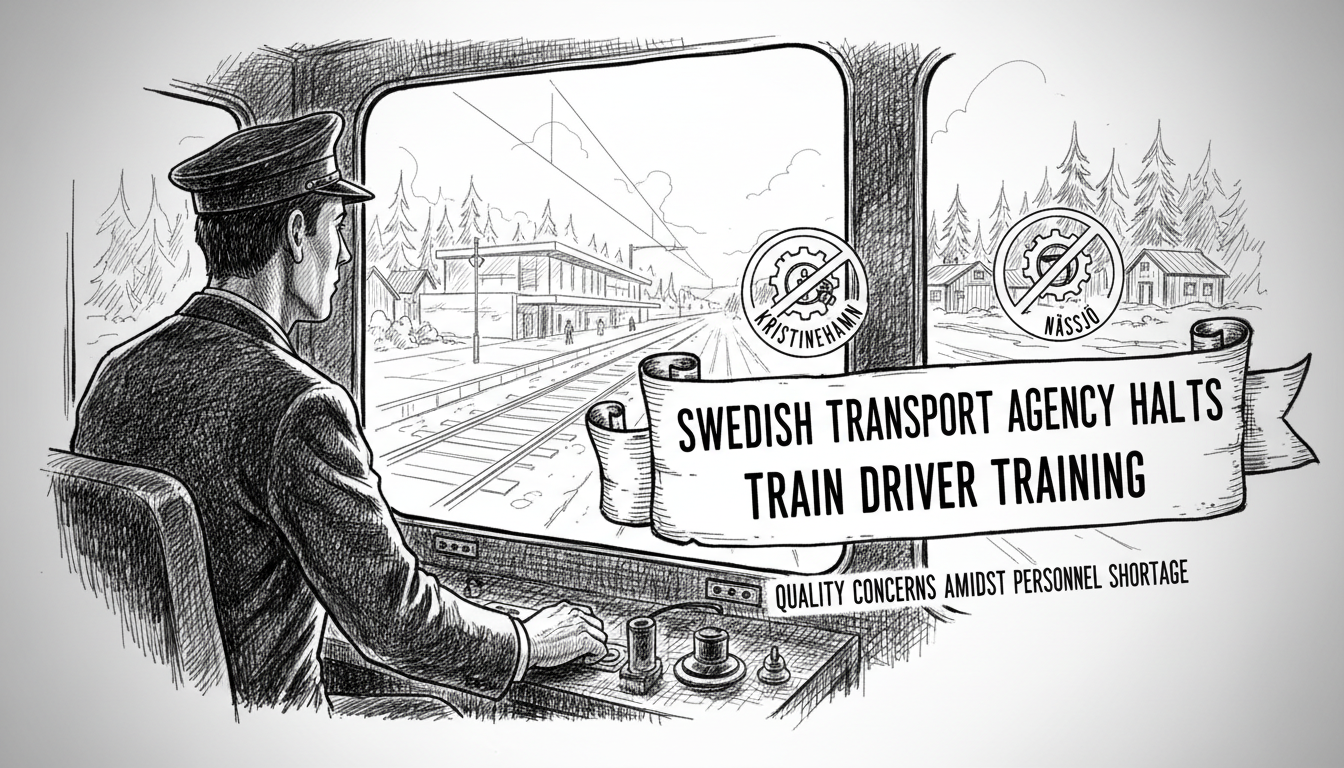The Swedish Transport Agency has immediately suspended train driver training programs in Kristinehamn and Nässjö. The decision took effect without delay and stops all instruction at both locations.
Petra Särefjord from the agency explained the reasoning behind this action. She stated that students must receive proper knowledge to perform train driver duties safely. The agency wants to guarantee that graduates meet all required competency standards.
This suspension affects current students who were preparing for careers in railway operations. The programs were training future drivers for Sweden's extensive rail network.
The agency may lift the ban if the training company demonstrates implemented improvements. The company has three weeks to appeal this decision. They must present evidence that they have addressed the agency's concerns.
Train driver training in Sweden typically involves both theoretical and practical components. Students learn about railway safety systems, signaling, and emergency procedures. They also complete extensive hands-on training with experienced instructors.
Sweden faces an ongoing shortage of qualified train drivers as railway expansion continues. The country has invested heavily in rail infrastructure in recent years. This makes properly trained drivers essential for maintaining safe and efficient transport services.
The suspension raises questions about quality control in vocational education. It also highlights the importance of regulatory oversight in transportation safety. Sweden has strict standards for all transport personnel given the potential safety risks.
Similar training suspensions have occurred in other Nordic countries when standards weren't met. Norway temporarily halted maritime training programs last year over quality concerns. Denmark also suspended certain heavy vehicle driver courses in recent months.
International readers should understand that Nordic countries maintain rigorous safety standards across all transport sectors. This reflects their commitment to public safety and reliable infrastructure. The region's challenging weather conditions and complex geography demand highly skilled transport operators.
What happens next depends on how quickly the training provider can address the identified issues. Students await clarity about when their education might resume. The Swedish rail industry watches closely given the existing driver shortage.
This situation demonstrates that regulatory bodies in Sweden take their oversight responsibilities seriously. They prioritize public safety over educational convenience or industry demands. The three-week appeal period gives the training company a chance to present their case.
The outcome could influence how other vocational training programs operate across Sweden. It may lead to increased inspections and higher standards for all transport-related education.

